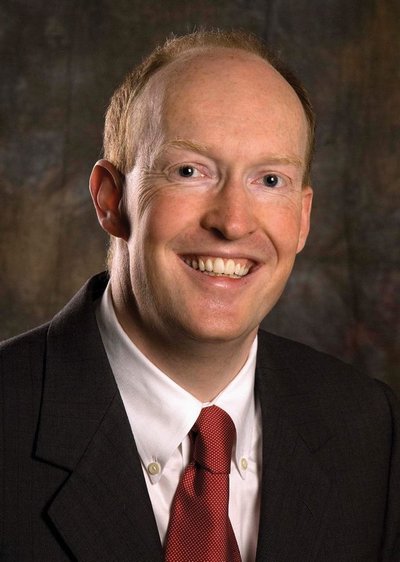May 31, 2007
Matt Sparke
When Matt Sparke was growing up in England he took an exam administered to many 11-year-olds to measure their problem-solving and reasoning skills — basically an intelligence test. Pass and you were ticketed for grammar schools and on to university. Fail and you were off to a more vocationally oriented high school and likely a working-class job.
Sparke failed the test. But with luck and the help of teachers at the school he did attend, he advanced academically anyway.
Not to put too fine a point on it, but seven years ago he won a nearly $250,000 career award from the National Science Foundation to study globalization, last year he achieved full professor status in geography and the Jackson School, and this year he garnered a distinguished teaching award.
Out of that early experience — being branded as someone who wouldn’t amount to much academically — Sparke has retained what he regards as a healthy skepticism toward the value of standardized tests.
Realizing that in a sense the system had written him off, Sparke said, “I never want to give up on anybody.” He remains a bit suspicious about pigeonholing certain students as creme de la creme or lost causes.
Maybe, too, his personal path is responsible for the occasional sense that he’s “an imposter,” someone who doesn’t truly belong on a university campus.
That can be a disabling thought, Sparke noted, but also a healthy one, because it forces him to focus on why he’s here, and question if he’s “doing enough to contribute” instead of just taking things for granted.
In addition to working with graduate students and upper-division undergraduates, Sparke reaches out to first-year students through an introductory course on globalization. For the roughly 500 students who register, he offers a weekly “open house coffee meeting” at the Suzzallo Library coffee shop.
That’s on top of maintaining office hours, he said, because some first-year students “find the idea of making an appointment with a professor quite daunting.”
Sparke has also offered students the chance to volunteer to work with various community service groups instead of writing a major research paper. One who interned with Save Darfur Washington State wrote in a teaching-award nominating letter that he was grateful for the “chance to develop passion for service through actual hands-on experience.”
Sparke, 39, uses humor and theatrical effects as part of his teaching repertoire. For example, it so happened that last fall Halloween fell on a Monday, just when he was ready to start lecturing on money and globalization.
“I told the students I was going to induct them into the ‘Sacred Society of the Pyramid,'” referring to the design on the back of a dollar bill. Sparke put on some organ music, dimmed the lights and lit candles on stage as he and the students chanted the Latin words, novus ordo seclorum, which also appear on the back of the bill.
“Then we finally burnt the dollar bill,” he recalled. “It was obviously a joke, but I wanted to get the students to stop and pause, and think about why that seems such an abominable thing to do — to burn money. It’s just paper.”
Part of the point, he said, was to get them “to think about money not being simply something that is held, but something that embodies a long history and global geography of relationships.” Some students memorialized the induction ceremony by snapping and uploading photos to Facebook.com, Sparke said.
A famous geographer who influenced Sparke and served as a mentor was David Harvey, who taught at the University of Oxford when Sparke attended as an undergraduate. “He was incredibly giving of his time,” as well as open-minded, Sparke recalled.
He also praised his colleague in geography at UW, Vicky Lawson, as a great model, active supporter, and someone who “has always given me wonderful feedback.”
“Resat Kasaba, Joel Migdal and many others have also inspired me with their teaching along the way,” said Sparke, “and while I still sometimes have those imposter twinges, I have also come to feel very warmly supported at UW.”

